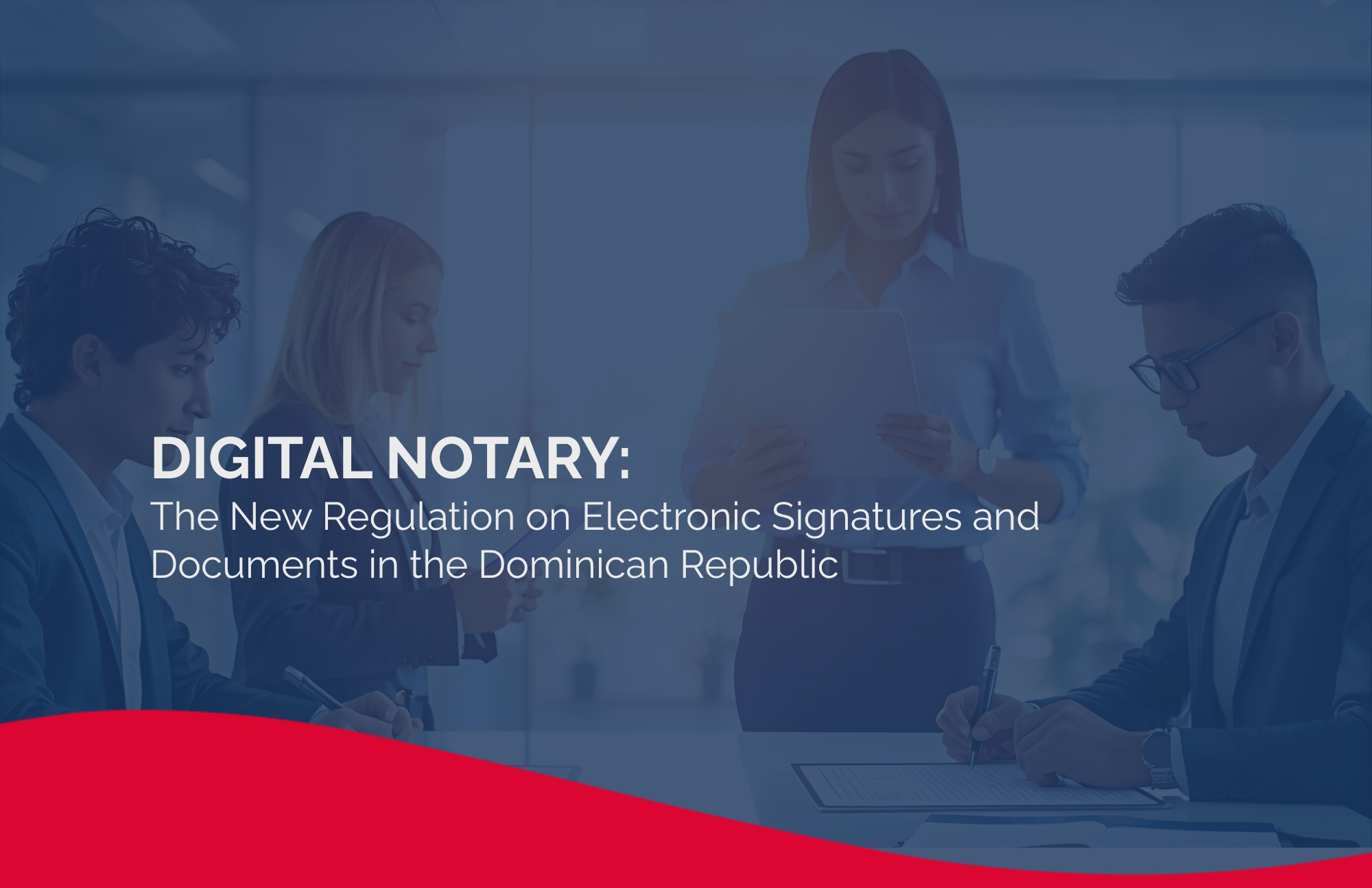
Digital Notary: The New Regulation on Electronic Signatures and Documents in the Dominican Republic
The digital transformation has also reached the notarial function in the Dominican Republic. With the approval of Resolution No. 50-2024, the Supreme Court of Justice has implemented the Regulation for the Use of Digital Documents and Signatures in the Exercise of Notarial Functions, which will come into effect within a maximum of twelve months from its publication. This regulatory framework represents a landmark change in the preparation, preservation, and validation of notarial acts, ensuring legal certainty in a digital environment.
Legal Framework and Objectives
The regulation is based on Law 126-02 on Electronic Commerce and Law 140-15 on the Notarial Profession, which recognize the legal validity of digital documents and signatures. Its primary purpose is to regulate the use of secure digital signatures in notarial documents, equating their evidentiary value to that of paper instruments.
Thus, notaries will be able to prepare deeds, contracts, powers of attorney, and other instruments in digital format, while safeguarding the guarantees of authenticity, integrity, and confidentiality.
Guiding Principles
The regulation rests on fundamental principles aimed at balancing innovation with legal certainty:
-
Optionality: the notary may choose between digital or physical documents.
-
Integrity and authenticity: secure and certified digital signatures are required.
-
Protection of personal data: obligation to safeguard the privacy of the parties.
-
Traceability and transparency: each notarial act must be subject to tracking.
-
Standardization: unified criteria for digital notarial practice.
Digital Notarial Documents
Digital notarial documents enjoy full legal validity, provided they are signed with a secure digital signature recognized by Indotel.
The regulation allows parties to appear either in person or remotely, with identity verification through electronic evidence. In addition, notaries may issue authentic digital copies with the same legal value as those issued on paper.
The Electronic Notarial Protocol
One of the most significant innovations is the creation of the electronic notarial protocol. This replaces the traditional physical protocol and will be kept by the notary but deposited in a national electronic repository administered by the Dominican Notaries Association.
In this way, the preservation, confidentiality, and immutability of the documents are ensured, with the possibility of recovery in the event of loss or damage.
Management and Oversight
The administration of the digital system will be entrusted to a Notarial Management Council, composed of:
-
The President of the Supreme Court of Justice (who presides over it).
-
The Attorney General of the Republic.
-
The President of the Dominican Notaries Association (serving as secretary).
This body will regulate the use of the digital platform and oversee the proper implementation of technological tools.
Furthermore, the Supreme Court of Justice, the Public Prosecutor’s Office, and the General Directorate of Internal Revenue will retain authority to inspect digital notarial documents.
Benefits of the Digital Signature in Notarial Practice
The regulation not only modernizes notarial practice but also offers significant advantages:
-
Streamlined procedures and reduced processing times.
-
Enhanced security and transparency in the execution of acts.
-
Remote accessibility, fostering digital inclusion.
-
Reduced paper use, with a positive environmental impact.
-
Strengthening of e-commerce and legal certainty in business transactions.
Conclusion
The incorporation of secure digital signatures in notarial practice marks a turning point in the Dominican legal system. This regulation not only addresses the need for modernization but also positions the country in line with international trends in the digitalization of legal services.
For citizens and businesses, this means greater efficiency and confidence in the formalization of legal acts. For notaries, it represents both a challenge and an opportunity to update their practice, thereby reinforcing their role as guarantors of public faith in the digital era.